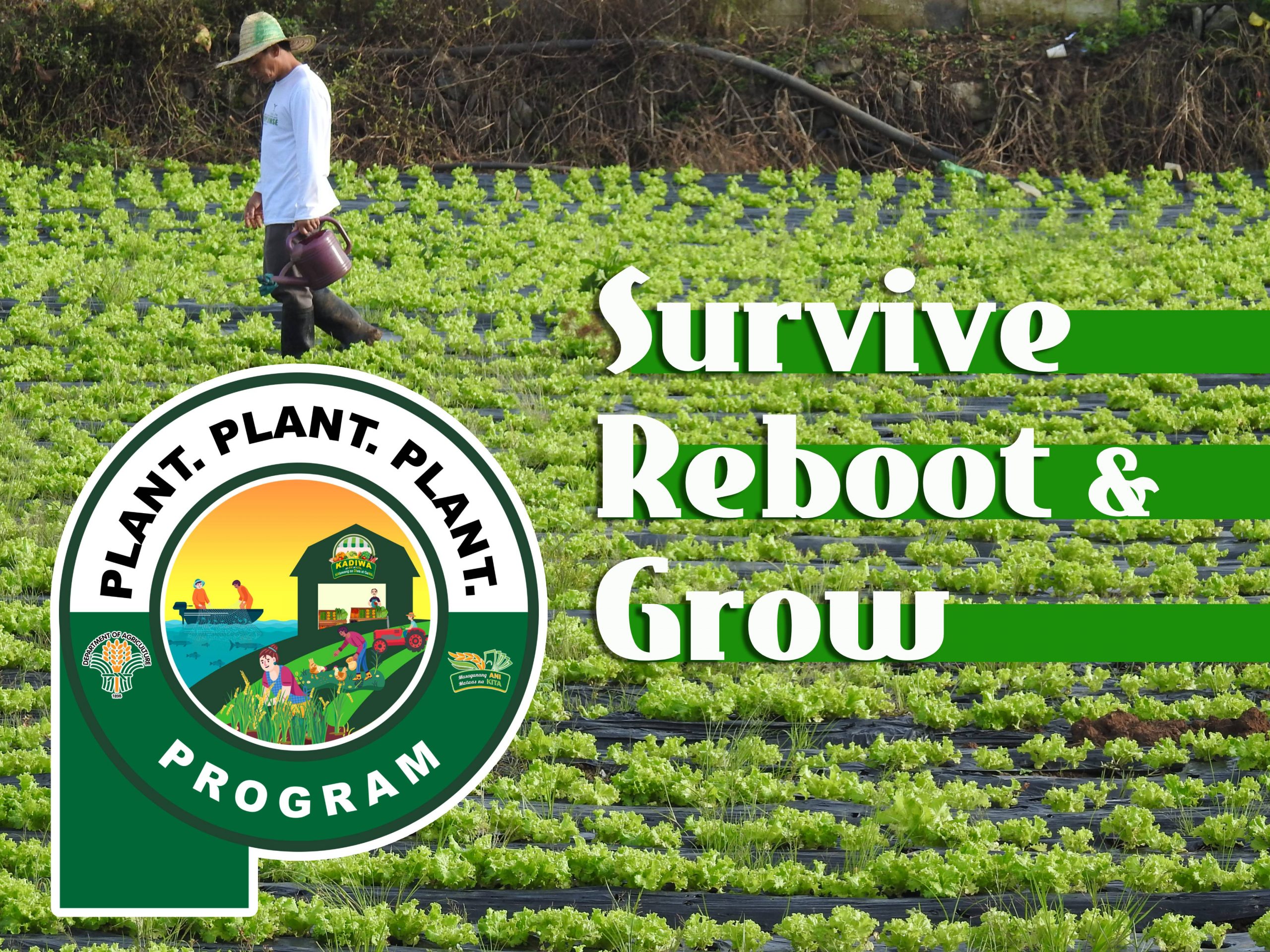
Amid the challenges in global food systems due to the Covid-19 pandemic, the Department of Agriculture (DA) is ready to take on the challenge of the ‘new normal’ facing the country’s agriculture and fishery sector.
Agriculture Secretary William Dar said the Covid-19 pandemic highlights the vulnerabilities of our current systems, particularly distorting the food supply chain and global trade. Therefore, it is imperative for the government to rethink and restructure its policies and practices to prevent from being overwhelmed by future crisis.
“First, we must simply surpass this global crisis. Then, under the ‘whole of nation approach,’ we should build our own resilience not only to threats like Covid-19, but also to emerging challenges like climate change,” Dar added.
“After Covid-19, it will not be business as usual, and we should focus on three principles, namely: survive, reboot, and grow,” he said.
Under the survival principle, the DA will continue to implement resiliency programs and projects, and on climate change.
For instance, to ‘survive’ this pandemic, he said the DA has provided farmers fast-moving interventions such as cash assistance and soft loans, issued ‘Food Pass’ to ensure unhampered movement of food and agri-fishery products, and massively promoted the Kadiwa ni Ani at Kita that links farmers directly to consumers.
The DA also revived the urban agriculture and backyard gardening programs to help attain household food security and formed the Bantay Presyo Task Force to enforce the price freeze and suggested retail price policies on basic food commodities.
“Secondly, we must reboot and reform our agricultural policies, and refocus our priorities to minimize the adverse effects and disruptions on agricultural production and food supply chain due to the Covid-19 pandemic,” he said.
“This is where our eight paradigms under the new thinking for agriculture come into play,” the DA chief added.
Upon assumption into office on August 5, 2019, Dar instructed all DA offices and agencies to realign their respective programs under the eight paradigms, namely: modernization, industrialization, export promotion, farm consolidation, infrastructure development, higher budget and investments for agriculture, legislative support, and roadmap development.
“We will elevate the eight paradigms by accelerating the implementation of the Plant, Plant, Plant Program that will further boost local food production and attain higher levels of food security,” he said.
“Thirdly, the agriculture and fishery sector must grow, by attracting more investments and resources, and partnering with the private sector and local government units — to increase food sufficiency levels, and at the same time modernize and industrialize the country’s agri-fishery sector,” he said.
“The DA should rally and steer all agri-fishery industry stakeholders to propel the sector to ‘grow’ and reach its optimum potential,” Dar added.
“With the help of the private sector and the LGUs, we hope to improve to the next level our productivity and food supply chain through farm consolidation and clustering, provision of accessible financing, stronger linkages between production and marketing, and establishment of more postharvest and processing facilities,” he added.
Just recently, the DA has partnered with private companies — like San Miguel Corporation, Agri Nurture, Inc., and Shell Philippines, among other agribusiness firms — to help the sector ‘grow,’ benefiting small famers and fishers.
“We call this big brother-small brother partnership, aimed at empowering small producers and fostering mutual gains for both parties,” Dar said.
While the COVID-19 pandemic has yet to make a significant impact on the country’s food productivity, he said the government is not leaving anything to chance, as it is now exploring ways on how to use the economic disruptions to improve food value chain and logistics, and climate-resiliency measures.
“Under the ‘new normal,’ the Duterte administration will prioritize interventions on agri-fishery productivity and resiliency, as we have witnessed the importance of food security during times like this. Hence, we will muster enough funds to bankroll food security initiatives at the national and local levels,” Dar added.
The transport and logistics system for food and agri-fishery products, inputs, and services must remain unhampered, he said. “Under the new normal, we will maximize the use of digital technology to link producers to consumers through e-commerce and related activities,” he said.
Meanwhile, the DA will increase the availability of safe, nutritious, fortified, and well-packed agri-food products. It will also intensify applied research for agri commodities with medical and therapeutic potential.
“Together, we will survive, reboot, and grow toward a food-secured nation,” Dar concluded. ### (Myriam Layaoen and Tomas Marquez, DA StratComms)













